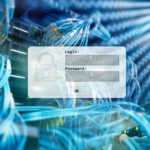Remote Authentication Dial-In User Service (RADIUS) is a networking protocol commonly used in enterprise applications like Internet Serve Providers (ISPs) and Virtual Private Networks (VPNs) to access network resources.
A very popular form of malware designed to lock a victim out of their computer, system, or files, then demand a ransom to regain access. In most cases, victims are emailed what appears to be a legitimate email from a trusted source, opens the email, and opens an attachment that contained malicious ransomware.
A random password generator is a tool that creates complex, unpredictable passwords using a combination of letters, numbers, and symbols. These generators are designed to prevent predictable patterns and enhance password entropy, making it harder for attackers to guess or brute-force them. While they improve security, managing these passwords effectively requires integration with secure storage or passwordless solutions like GateKeeper.
Role-Based Access Control (RBAC) is a method of managing access to resources and locations based on role-defined permissions. These permissions are based on the specific responsibilities and tasks that a user in that role must perform.
RDP, or Remote Desktop Protocol, is a secure protocol developed by Microsoft to enable users to view and interact with Windows machines remotely. This protocol rivals the open-source VNC (Virtual Network Computing) protocol used on platforms such as Linux.
Radio-Frequency Identification (RFID) technology is a form of proximity-based identification. It uses microchips to emit and capture radio waves to identify and track electronics. This is primarily applied through transmitters (signal emitters) and transponders (signal receivers).
Risk-based authentication is a type of authentication mechanism that uses a "risk profile" of a user to determine the level of authentication required. An example of risk-based authentication (RBA) is using multiple elements such as a user's geolocation and time of day to decide whether that user requires a strong authentication (e.g. password plus OTP) or a weaker authentication.
Risk management is the process of identifying and mitigating risks to an organization's strategies, maximizing their effectiveness while making sure that risks taken are controlled and worthwhile. This allows organizations to make more informed decisions, better allocate funds, and more carefully navigate challenging situations.
A Records Management System (RMS) is a software solution designed to manage and organize records and documents within an organization. It provides a centralized platform for creating, storing, indexing, retrieving, and managing records throughout their lifecycle. RMS solutions are used by various organizations, including law enforcement, public safety agencies.
The RSSI (Received Signal Strength Indicator) is the measurement of how well a device can read a particular wireless radio signal. A higher RSSI number (e.g. -25) means a powerful and accurate signal. A lower RSSI number (e.g. -75) means that the signal is not as clear and accurate (due to being further away, obstructed, or both).
A rugged computer is a type of computer designed to operate reliably in harsh environments where conventional computers could not. They are usually designed to withstand prolonged exposure to heat and moisture, and should be able to survive against dust, vibration, shocks, and falls without immediate risk of failure.
According to studies, over 30% of all support tickets are related to password resets/forgotten passwords.
Enterprise 2FA and password manager. One key for all your passwords. Experience fully automated login and security. For example, faster MFA, auto-OTP, password manager, and worry-free workflow with proximity-based privileged access management for Windows 11, 10, 8, 7, VPNs, websites, and desktop applications including MES, EHR, CAD, and more. Overall, a massive upgrade to security and efficiency.
or call 240-547-5446









![[IT WIKI] RMS [IT WIKI] RMS](https://gkaccess.com/wp-content/uploads/2025/06/IT-WIKI-RMS-150x150.webp)


